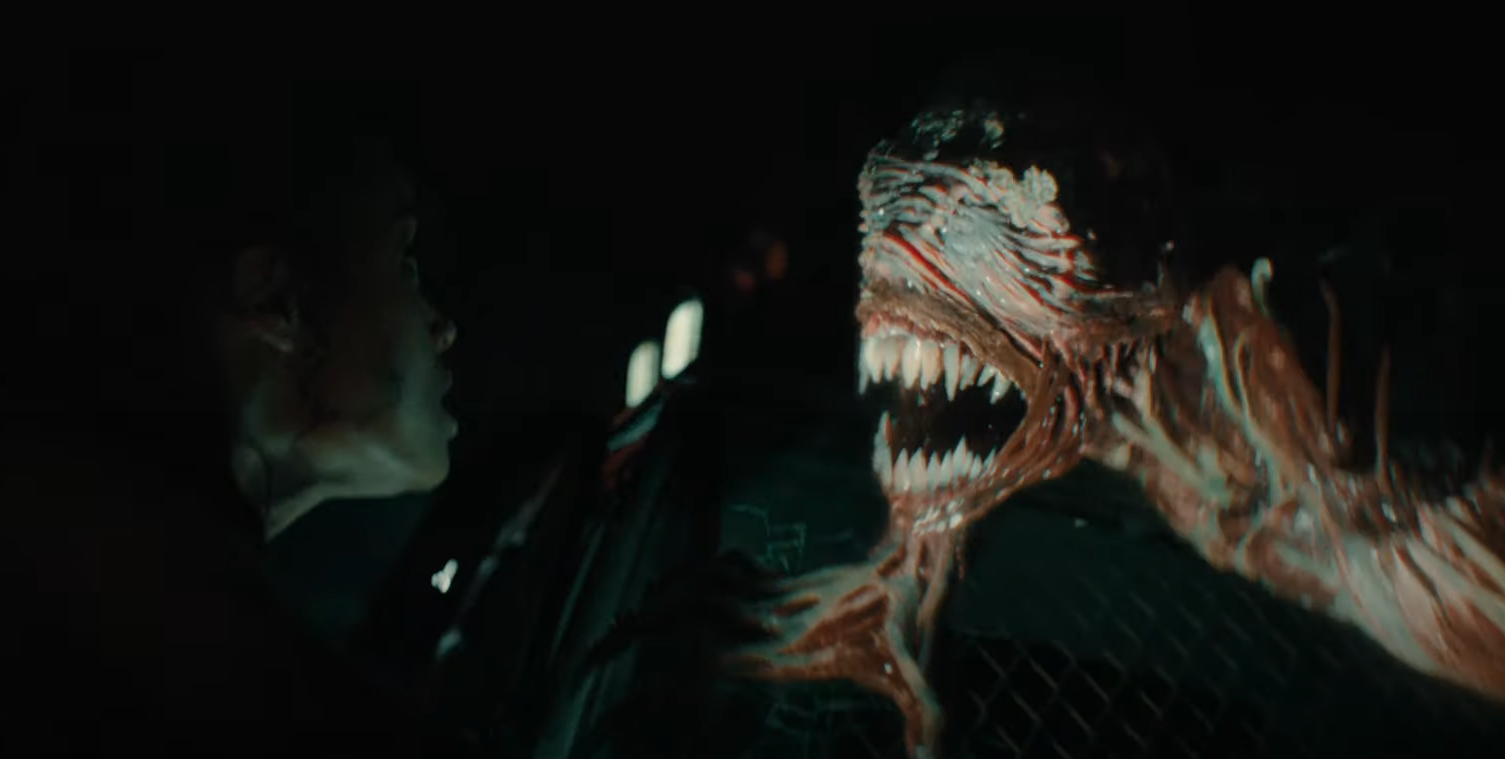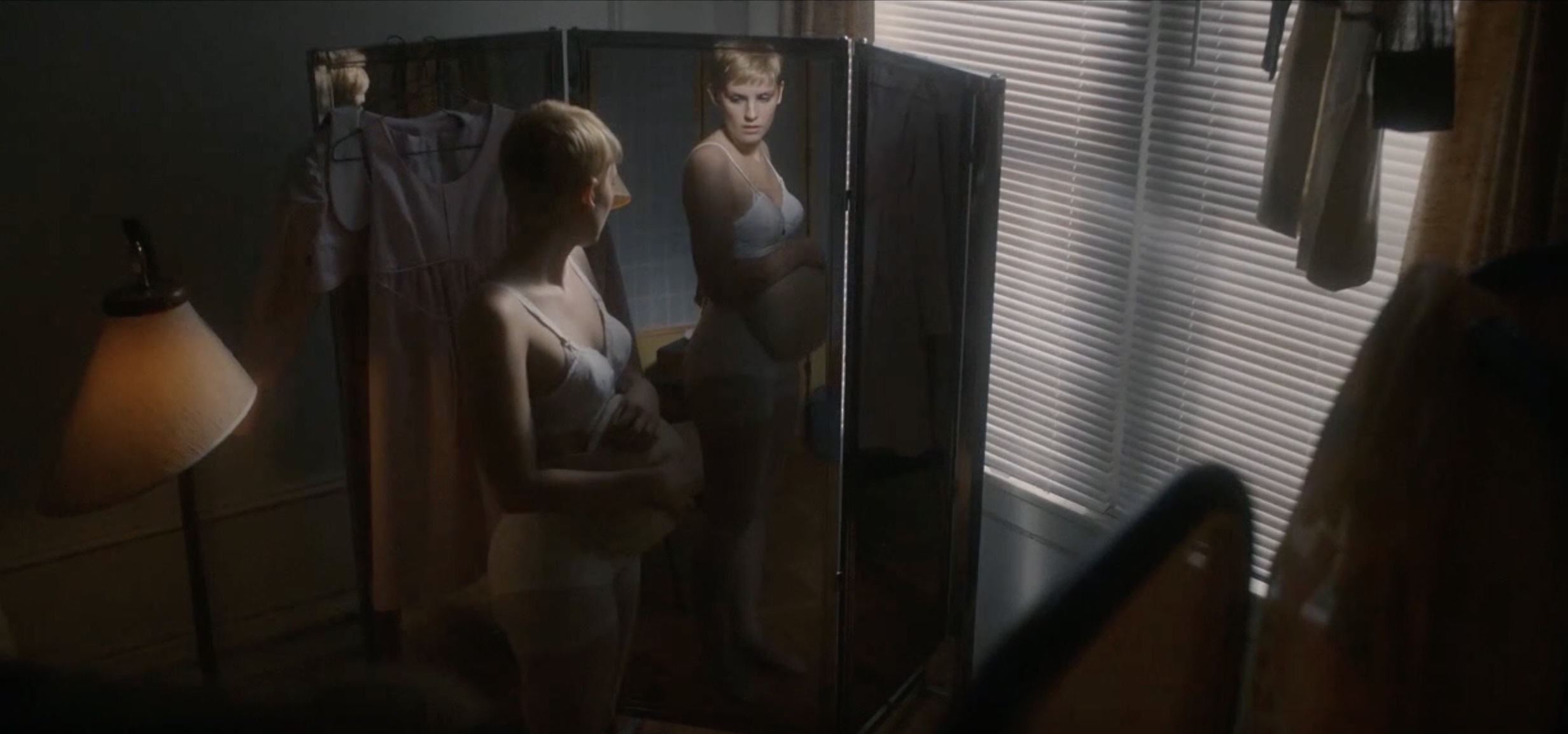Reviews
Netflix’s “Resident Evil” Review – New Series Blends Original Action-Horror with Expansive Franchise Lore

Capcom’s long-running Resident Evil video game series that began in 1996 amassed an extensive and complex history throughout dozens of games in the last twenty-six years. It’s since inspired various tie-in merchandise, novels, comics, animation, and multiple adaptations, including Paul W.S. Anderson’s loosely inspired big-budget action-horror franchise. Netflix’s “Resident Evil” series exists at the crossroads of Anderson’s action-horror films and the video games’ horror roots, presenting an original action-horror spectacle that goes big on franchise lore while working as an entry point for newcomers.
“Resident Evil” follows two timelines. In 2022, teens Jade (Tamara Smart) and Billie (Siena Agudong) adjust to their new home and high school in New Racoon City, South Africa. Their workaholic dad, Albert Wesker (Lance Reddick), spends most of his time at the Umbrella lab working on a new drug in response to the events that decimated the old Racoon City. In 2036, an adult Jade Wesker (Ella Balinska) remains haunted by her past while fighting for survival in an apocalyptic world overrun by monsters.

Showrunner Andrew Dabb (“Supernatural”) hinges the inaugural season’s overarching mystery on the gap between timelines and, foremost, its characters. In the present day, Jade and Billie couldn’t be any closer as bonded sisters or further apart in personality. Jade is the more assertive extrovert, whereas Billie is the guarded introvert with an empathetic streak that gets her in trouble. It’s not just the perils of high school they band together to navigate but the unique circumstances of their upbringing by the world’s leading biochemist at a morally questionable corporation. This timeline largely shapes the future and includes the inciting event, but Dabb keeps the details and reveals close to the chest.
Whereas 2022 is far more character-driven and story-focused, the 2036 timeline emphasizes horror-action thrills. While the adult Jade is still shrouded in mystery, it’s all overshadowed by the bombastic set pieces, fight choreography, and high-octane survival horror as her personal mission whisks her through various harrowing encounters with infected, seedy Umbrella ambassadors and monsters large and small.
It’s the latter where “Resident Evil” shines the brightest, especially for the biggest video games fans. There’s no shortage of fantastical and ferocious creatures plucked straight from the games’ canon. How each gets incorporated ranges from entertaining fan service to thrilling deep cuts that’ll surprise and delight you. The series inserts these monsters in such an accessible way that working knowledge of the lore isn’t necessary; it works just as well as an insanely packed creature feature showcase. If you want a nonstop, unpredictable action-horror series that delivers the kitchen sink of monster encounters, this is for you.

However, this adaptation can’t escape the campiness that haunted the initial video games, and it can lead to some strange tonal whiplash. Some aspects of this series want to be taken seriously, while others go full throttle on silliness. When it works, it’s an absolute blast. When it doesn’t, it works against the series. Evelyn Marcus (Paola Nuñez) serves as the season’s villain, an Umbrella boss with a heart of ice. But the season waits too long to offer any insight into Evelyn and her true villainess capabilities, rendering Nuñez’s scene-chewing performance as nothing more than a mustache-twirling caricature rather than an actual threat. One pivotal scene late-season finally casts this villain in a menacing light, but it comes too late. Balinska deftly handles the physically demanding aspect of her role, demonstrating her action mettle, but struggles with some of the emotional demands of her character.
If there’s one star performance among the pack this season, it’s Lance Reddick’s surprising take on franchise mainstay Albert Wesker. Of course, Wesker holds some shocking secrets crucial to this season, but Reddick’s range with the character impresses. This Wesker does bear the commanding presence and dangerous authority fans would expect, but it’s infectious when Reddick really cuts loose.

RESIDENT EVIL. ELLA BALINKSA as JADE, ELLA BALINSKA as JADE in RESIDENT EVIL. MARCOS CRUZ/NETFLIX © 2022
The two converging timelines work in driving the plot forward and prolonging the answers, but it can create pacing struggles in places. Overall, Dabb delivers a compulsive inaugural season full of monster mayhem, impressive scale and spectacle, and a compelling set of characters in the Wesker family. Devout video game fans will find a surprising breadth of Easter eggs and deep cut nods; there’s a clear reverence for the video game franchise with an earnest desire to evolve something new from that. Still, newcomers will find themselves at home in this wildly unpredictable world that flings a breathless variety of creatures at Jade.
Even when uneven, the monster showcase and action-horror thrills make “Resident Evil” a brisk and entertaining romp that leaves you hoping for more.
Netflix’s “Resident Evil” television series will debut globally on July 14, 2022.


Reviews
“AHS: Delicate” Review – “Little Gold Man” Mixes Oscar Fever & Baby Fever into the Perfect Product

‘AHS: Delicate’ enters early labor with a fun, frenzied episode that finds the perfect tone and goes for broke as its water breaks.
“I’ll figure it out. Women always do.”
American Horror Story is no stranger to remixing real-life history with ludicrous, heightened Murphy-isms, whether it’s AHS: 1984’s incorporation of Richard Ramirez, AHS: Cult’s use of Valerie Solanas, or AHS: Coven’s prominent role for the Axeman of New Orleans. Accordingly, it’s very much par for the course for AHS: Delicate to riff on other pop culture touchstones and infinitely warp them to its wicked whims. That being said, it takes real guts to do a postmodern feminist version of Rosemary’s Baby and then actually put Mia Farrow – while she’s filming Rosemary’s Baby, no less – into the narrative. This is the type of gonzo bullshit that I want out of American Horror Story! Sharon Tate even shows up for a minute because why the hell not? Make no mistake, this is completely absurd, but the right kind of campy absurdity that’s consistently been in American Horror Story’s wheelhouse since its inception. It’s a wild introduction that sets up an Oscar-centric AHS: Delicate episode for success. “Little Gold Man” is a chaotic episode that’s worth its weight in gold and starts to bring this contentious season home.
It’d be one thing if “Little Gold Man” just featured a brief detour to 1967 so that this season of pregnancy horror could cross off Rosemary’s Baby from its checklist. AHS: Delicate gets more ambitious with its revisionist history and goes so far as to say that Mia Farrow and Anna Victoria Alcott are similarly plagued. “Little Gold Man” intentionally gives Frank Sinatra dialogue that’s basically verbatim from Dex Harding Sr., which indicates that this demonic curse has been ruffling Hollywood’s feathers for the better part of a century. Anna Victoria Alcott’s Oscar-nominated feature film, The Auteur, is evidently no different than Rosemary’s Baby. It’s merely Satanic forces’ latest attempt to cultivate the “perfect product.” “Little Gold Man” even implies that the only reason that Mia Farrow didn’t go on to make waves at the 1969 Academy Awards and ends up with her twisted lot in life is because she couldn’t properly commit to Siobhan’s scheme, unlike Anna.
This is easily one of American Horror Story’s more ridiculous cold opens, but there’s a lot of love for the horror genre and Hollywood that pumps through its veins. If Hollywood needs to be a part of AHS: Delicate’s story then this is actually the perfect connective tissue. On that note, Claire DeJean plays Sharon Tate in “Little Gold Man” and does fine work with the brief scene. However, it would have been a nice, subtle nod of continuity if AHS: Delicate brought back Rachel Roberts who previously portrayed Tate in AHS: Cult. “Little Gold Man” still makes its point and to echo a famous line from Jennifer Lynch’s father’s television masterpiece: “It is happening again.”
“Little Gold Man” is rich in sequences where Anna just rides the waves of success and enjoys her blossoming fame. She feels empowered and begins to finally take control of her life, rather than let it push her around and get under her skin like a gestating fetus. Anna’s success coincides with a colossal exposition dump from Tavi Gevinson’s Cora, a character who’s been absent for so long that we were all seemingly meant to forget that she was ever someone who was supposed to be significant. Cora has apparently been the one pulling many of Anna’s strings all along as she goes Single White Female, rather than Anna having a case of Repulsion. It’s an explanation that oddly works and feeds into the episode’s more general message of dreams becoming nightmares. Cora continuing to stay aligned with Dr. Hill because she has student loans is also somehow, tragically the perfect explanation for her abhorrent behavior. It’s not the most outlandish series of events in an episode that also briefly gives Anna alligator legs and makes Emma Roberts and Kim Kardashian kiss.

“Little Gold Man” often feels like it hits the fast-forward button as it delivers more answers, much in the same vein as last week’s “Ava Hestia.” These episodes are two sides of the same coin and it’s surely no coincidence that they’re both directed by Jennifer Lynch. This season has benefitted from being entirely written by Halley Feiffer – a first for the series – but it’s unfortunate that Lynch couldn’t direct every episode of AHS: Delicate instead of just four out of nine entries. That’s not to say that a version of this season that was unilaterally directed by Lynch would have been without its issues. However, it’s likely that there’d be a better sense of synergy across the season with fewer redundancies. She’s responsible for the best episodes of AHS: Delicate and it’s a disappointment that she won’t be the one who closes the season out in next week’s finale.
To this point, “Little Gold Man” utilizes immaculate pacing that helps this episode breeze by. Anna’s Oscar nomination and the awards ceremony are in the same episode, whereas it feels like “Part 1” of the season would have spaced these events out over four or five episodes. This frenzied tempo works in “Little Gold Man’s” favor as AHS: Delicate speed-runs to its finish instead of getting lost in laborious plotting and unnecessary storytelling. This is how the entire season should have been. Although it’s also worth pointing out that this is by far the shortest episode of American Horror Story to date at only 34 minutes. It’s a shame that the season’s strongest entries have also been the ones with the least amount of content. There could have been a whole other act to “Little Gold Man,” or at the least, a substantially longer cold open that got more out of its Mia Farrow mayhem.
“Little Gold Man” is an American Horror Story episode that does everything right, but is still forced to contend with three-quarters of a subpar season. “Part 2” of AHS: Delicate actually helps the season’s first five episodes shine brighter in retrospect and this will definitely be a season that benefits from one long binge that doesn’t have a six-month break in the middle. Unfortunately, anyone who’s already watched it once will likely not feel compelled to experience these labor pains a second time over. With one episode to go and Anna’s potential demon offspring ready to greet the world, AHS: Delicate is poised to deliver one hell of a finale.
Although, to paraphrase Frank Sinatra, “How do you expect to be a good conclusion if this is what you’re chasing?”















You must be logged in to post a comment.